In 2001, my friends all thought I was mad when I drove 12 hours to Jackson, Mississippi, to attend the funeral of a 92-year-old Southern gentlelady.
But this wasn’t just any old lady. She was my hero.
I met Eudora Welty in college when she spent three days with us at the invitation of an organization of English majors I was part of. They were three days that changed my life. Although I never saw her again, I followed her closely, and I’d always longed to visit her in her home — to drop by for tea as so many of her devotees did, and which someone I met at a party had done. It never happened. But I always figured that someday I would overcome my anxieties and pay a call on her in her home.
When she passed away, my hopes were crushed. But recently, I managed to fulfill a life’s dream by stopping by Miss Welty’s home in Jackson, which is now open to the public and kept exactly as it was when she lived there. The atmosphere is so intensely personal you get the sense that she’s still there somewhere, perhaps out in the kitchen, fixing you her famous crabmeat casserole.
In April of 2009, Welty would have turned 100. But I met her during my senior year at Kent State when she was a spry 68, still in the prime of her writing career. My organization had resolved to bring a major writer to campus. We’d sent out invitations to all the big names, even Solzhenitsyn, whom we didn’t realize couldn’t speak English. We got nice refusals from John Updike and John Barth, a snippy “no” from Joyce Carol Oates. What stung us most was a letter from the campus programming board, who was funding us. They said we were aiming too high and suggested a number of “second-tier writers,” none of whom we’d ever heard of. It was looking bleak.
But then we heard from the resident of 1119 Pinehurst Street in Jackson, a long, gracious letter saying how charmed she’d been by our sincere request, that she’d love to spend time with us, but could we accommodate the rather narrow timeframe she had available? We’d have accommodated her at any hour of the day or night. We had landed Eudora Welty.
We were stunned — and starstruck — that we were about to host a woman some called the greatest living American writer. Yet she was hardly a household name — the question most frequently asked of us was “Eudora who?” But for us, she quickly evolved into our personal Superauthor. We pored over her work, and even before she arrived, we started affectionately calling her “Miss Eudora.”
We caravanned to the Cleveland airport to meet her. One of the two biographies written of her spends considerable space — unkindly — describing how homely she was. Still, it was possible within 30 seconds of meeting her to forget those surface things. Charming, self-effacing and with a mischievous wit, she was an absolute joy to be around. She hung on your every word and made life an adventure, a funny one. From the moment you met her, you never wanted to leave her side.
We spent three days palling around with Miss Eudora, taking her to receptions with faculty and students, parties, the public reading. We adored her lavishly. Each of us has our favorite memories, like the drink she ordered at a restaurant: “Bourbon, with just a splash of wahtah.”
She was bowled over with wonderment at everything around her, marveling in that beguiling Southern drawl at the beauty of everyday things. Once when we picked her up at her hotel, she couldn’t wait to tell us a story. “What do you think I saw floating past my window?” she asked, her face all puckered with expectation. We couldn’t guess. “Bubbles!” she declared, as if there could be nothing more wondrous. She found miracles even in children blowing bubbles on a balcony below her.
Her visit ended far too quickly, but not our adoration. We wrote to her from time to time. Some friends even invited her to their wedding; she sent back a handwritten note, politely declining. Years later, I did make one tentative move to see her again. When I was planning a visit through the South, I wrote to Miss Eudora and proposed a dinner date. To my disappointment, she wrote back explaining she expected guests that weekend, but she still had “very fond memories” of her trip to Kent State. I did pass through Jackson on that trip and made a drive-by of her house — actually several drivebys — to memorize its every detail. Other people stalk rock stars. Me, I go after noted literary figures.
I even subscribed to the Eudora Welty Newletter, which, to my displeasure, was scholarly and arcane. I wanted to know what private merriment she was up to! Then I heard her health was declining. I decided to surprise her. I drove to Hocking County in southern Ohio, about an hour from where I live in Columbus. I knew that her father had grown up there on a farm.
It was a delightful day of mystery solving — poring through old real estate records to determine the farm’s location and then careening around hairpin curves, spilling all over myself some sunflower seeds I’d bought at Logan. I took many pictures of the farm as it now looks and sent them to her. When she didn’t reply, I knew her health problems were serious indeed. Then I heard there was a sign on her door, asking the uninvited no longer to knock.
Even long-expected deaths come as a blow, and so, on July 23, 2001, I found myself contacting old friends from Kent, some as weepy as myself, as though we’d lost an old pal. In my mind, there was no question — I couldn’t miss the funeral.
So off I went. It was a rainy day in Jackson, but that didn’t deter 600 people from coming out to honor their resident icon. There was even TV coverage. There were simple folks and Jackson’s high society dressed to the nines. On the crowd’s fringes, I spotted people like myself, who’d made the pilgrimage alone. Oddly, I talked to no one. This was an exceedingly private event for me.
The service slowly evolved into what I’d hoped — a soulful celebration of this remarkable woman’s life with playful remembrances by a former Mississippi governor and her literary agent. Occasionally, loud laughter rang out, exactly what she’d have relished. It was a fond heartfelt sendoff by people who’d loved Miss Eudora even more than I. Still, nothing that day touched me more than the sight of a simple bouquet of flowers some stranger had left on the front stoop of her house on Pinehurst Street.
Even with the writer gone, we will always have her written words, and now — for true devotees — there’s the home itself. I’d heard that it had finally opened to the public but hadn’t made any motions to get there, until the centennial of Miss Eudora’s birth.
As a freelance writer, I wanted to share the joy of the occasion through a story that would persuade others to come visit the Welty home but I wondered what angle might be the best draw. I soon found one that interested editors — the fact that the home in Jackson was being inducted into something called the “Southern Literary Trail,” a confederation of writers’ homes and other sites associated with them scattered through the Deep South. Several editors were intrigued, especially when I said I planned to personally visit several sites.
From the beginning, it seemed that fortune smiled on me on this assignment. And fortune smiled again when I called the Welty House, which I was saving for last. When I found out photography wasn’t allowed, I asked if exceptions were made for writers on assignment. I was told that I’d need to speak to the director, Mary Alice White. She and I had a lovely conversation, and she told me that most certainly she’d allow me to take photos and that she looked forward to meeting me. All through the conversation, something about her name was nagging me. I had my answer when I went to one of the Welty biographies I’d just read and looked in the index. I’d been speaking to Eudora Welty’s niece! And she wanted to meet me!
When I pulled in front of the handsome Tudor-style home on Pinehurst Street that March morning, I could scarcely believe that, at long last, I was about to see its interior. At the house next door, which is now the visitors center, I was looking at some biographical exhibits when Mary Alice walked up and introduced herself. She was as friendly and gracious as she’d been on the phone. She explained that she was going to let me go through the house on the regularly scheduled tour, and then she would go through with me privately to answer any questions and to let me take photos. I couldn’t believe my good luck.
We watched a wonderful film on Miss Eudora’s legacy that had a number of shots of her inside the house, reinforcing the feeling that she was still there. When we walked toward the house and were led through the front door, just like any guest in her lifetime, I felt my pulse quicken. I was entering a shrine.
And from the moment you enter, you see that it’s definitely a literary shrine because Miss Eudora’s books — 5,000 of them — are everywhere, not just in the abundant shelves but scattered across the dining room table and even filling the couches in the living room. The charming tour guide told us that whenever guests dropped by, their obliging hostess would shove the books aside to make room for them to sit.
Beside her favorite chair, a paisley wingback, is a TV stand with items she’d have placed there herself — packets of pralines, her glasses case, a favorite cassette. Paintings and mementoes of her family are everywhere — this house definitely feels like a home, not a museum. There are none of Miss Welty’s awards on display because she didn’t display them herself, except for one she received from the Mystery Writers of America, a porcelain raven presented to her for being such a devoted reader of mysteries. The only other signs that she was a literary icon is a framed “fan letter” she once received from E.M. Forster.
Our tour guide was delightful, not only pointing out the home’s highlights, but regaling us with anecdotes — such as the time when Eudora was entertaining the newscaster Roger Mudd, who became a good friend of hers, and spilled that famous crabmeat casserole all over the kitchen floor, forcing them to dine on salad and broccoli. I was also tickled to learn that Eudora’s nieces called their famous aunt “Dodo” because Mary Alice’s sister, Liz, was unable as a child to pronounce the proper name.
Upstairs, the best is saved for last — the combination bedroom/study, where she produced much of her magnificent fiction, and thus a shrine within a shrine, the very spot literary pilgrims most want to see. The cluttered desk sits beside a row of windows through which Eudora loved to listen to the sound of piano practice coming from Belhaven College across the street. Her final typewriter, an electric one bought as relief for her arthritic hands, is also there. Eudora disliked it. She claimed its constant hum nagged her to work.
Of all the rooms in the house, this one has the most intimate feel to it, partly because it was also Eudora’s bedroom. There sit her favorite fragrances lined up on her bureau, and beside her bed, one of my favorite objects in the house because it was so quirky, the turquoise Princess phone she adored. Still, the atmosphere here is suited to those inclined to being reverential. This is where the writer worked. This is where her body of work was produced.
When the tour was over, Mary Alice, Miss Eudora’s niece and now executive director of the house, took me back through again so I could take photos. I’m afraid I was a little too comprehensive, taking every room from every conceivable angle, even the bathroom.
All the while I was jabbering away, revealing to Mary Alice how devoted I’d been to her aunt, even telling her that I’d come to the funeral. I think she was a bit taken back, but nevertheless said that of everything I’d told her, the thing that meant the most was that I was back in touch with friends at Kent that I’d lost contact with for a while but had it restored when Miss Eudora passed away. I was touched. She was a lovely, Southern gentlewoman, as charming as her aunt, and even said she would send me the recipe for the crabcake casserole. And true to her word, she did just that.
After I took my leave of Mary Alice, I strolled through the garden that both Miss and Mrs. Welty, her mother, had loved so much, even filching one of the hundreds of camellias to take it home and dry it. (It’s on my mantle). But still, my day of slavish devotion wasn’t over. They’d given me a map for a “Eudora Welty” roadtrip through Jackson that took me past the house where she was born, her grade school, her high school, even a little shop where she ran to buy soft drinks when she was a child. It also stops at her grave, a shady and green spot she’d have loved.
I even went to the Mississippi Archives, where all of Miss Eudora’s letters and manuscripts are kept. There are thousands of things to be seen here, and it’s difficult to choose what to ask for. I ended up choosing a couple boxes almost at random, but still managed to see some unpublished stories and some letters, including one to the man I knew from her biography was one of the two loves of her life. They weren’t really love letters, but they were very intimate, and I started to feel like a voyeur. And so I stopped and returned the boxes.
I still wasn’t quite finished. It was back onto the streets of Jackson to find the beauty parlor where she had her hair done every Wednesday at 1:30 (Read “Petrified Man” to find out why a beauty shop is important in her work!). And I ended the day having dinner at what I’d read was her favorite restaurant, a place called “Bill’s Burger House” when she was living, where they served Greek food in the evening, and where Miss Eudora was so beloved as a frequent visitor that they would serve her bourbon in the back room of the restaurant, even though they didn’t have a liquor license.
Then it was back in my car for 12 hours to ponder what this woman meant to me. Certainly she never wanted to be revered. An enthusiastic interviewer once gushed that he’d like to adopt her as his grandmother. “I don’t want to be anyone’s damn grandmother,” she’d replied.
But revere here I did. And always will. If my house were on fire, the first things I’d save would be her autographed books and my tape of her reading Why I Live at the P.O., by my estimation the most perfect gem of a story ever written. Even in her written words you hear her voice, her deep humanity, her joy of living. I can still see how her nose crinkled up whenever she laughed. She was the most charismatic person I ever met.
She lived an ordinary life so extraordinarily, in this house and in this town among people she’d always known. She didn’t need to travel to the ends of the earth to find life’s magic. She saw it out her own front door. She closes her magnificent autobiography, One Writer’s Beginnings, with the words “As you have seen, I am a writer who comes of a sheltered life. A sheltered life can be a daring life as well. For all serious daring starts from within.”
Those words will always send shivers up my spine.


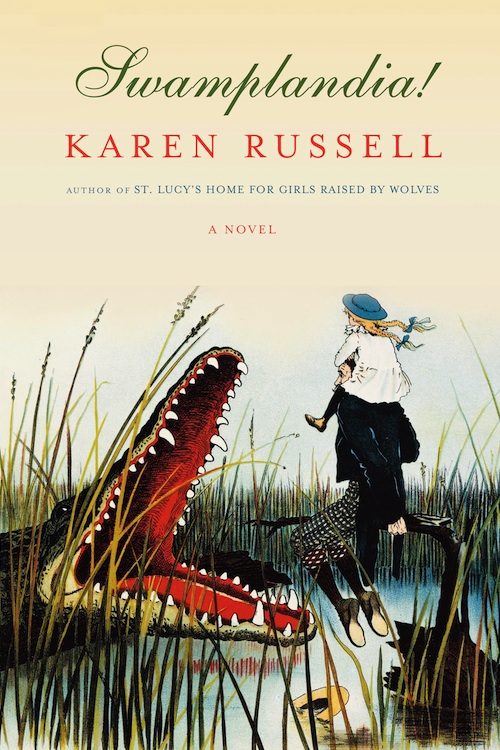
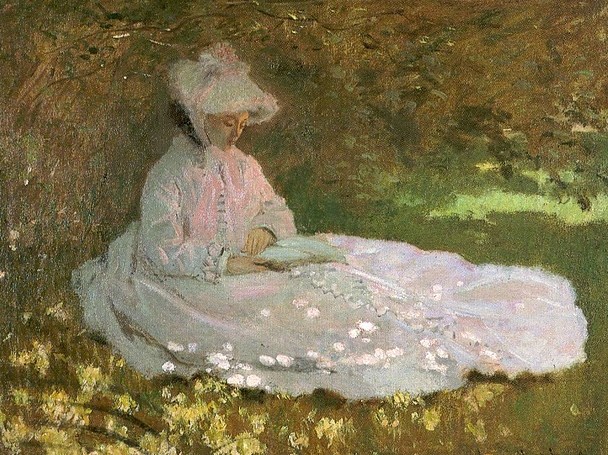
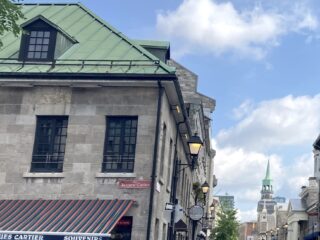
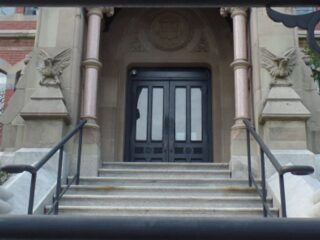



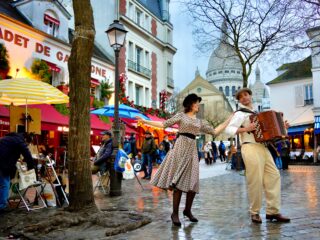
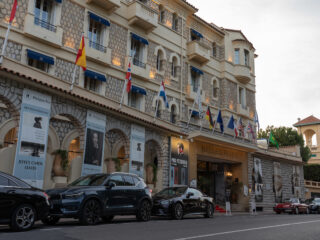

5 comments
Thank you Rich – this is a lovely piece. You introduced me to Eudora many years ago, very early in our friendship. Her story “Why I Live at the P.O.” started my love affair with short stories written and set in the south.
What a wonderful story! I love Eudora Welty’s writings, love her home and gardens — and now I am dying to have that crab casserole recipe! Would also love to hear her read “Why I Live at the P.O.” — is that anywhere online now?
What a warm and intimate look at an under-appreciated author — thanks!
A lovely story!
Touching–My kind of human interest writing. It has ignited in me the desire to do more of it.